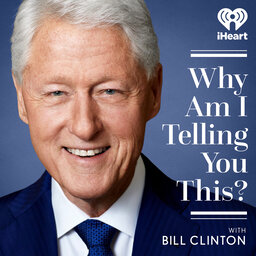Matt Damon & Gary White: How to Measure the Worth of Water
More than 770 million people around the world are living without access to clean water—including in communities throughout the United States. The challenges this creates to public health, economic opportunity, education, and gender equality are astounding, and the crisis of water inequity is only growing more urgent due to the effects of climate change.
In this episode, President Clinton is joined by an unlikely pair who are working together to bring access to life’s most fundamental resource a reality for everyone across the globe—actor and Academy Award winner Matt Damon, and water and sanitation engineer Gary White. After meeting at a Clinton Global Initiative meeting more than a decade ago, they partnered to found the organization Water.org, and later WaterEquity, and have now brought clean water to more than 40 million people in 11 countries. In their conversation with President Clinton, they discuss their new book The Worth of Water, explain the urgency of the water crisis and why they’re both so passionate about it, and outline a roadmap to how solving this problem is possible within our lifetimes.
In 1 playlist(s)
Why Am I Telling You This? with Bill Clinton
President Bill Clinton has always been known for his ability to explain complex issues in a way that…Social links
Follow podcast
Recent clips

Prime Minister Tony Blair: How to Define Our Interdependence
47:36

President Bill Clinton: Reinstate the Assault Weapons Ban Now
08:00

Dr. Jill Biden and Hillary Clinton: How Community Colleges Can Build A Modern Workforce
26:00
 Why Am I Telling You This? with Bill Clinton
Why Am I Telling You This? with Bill Clinton